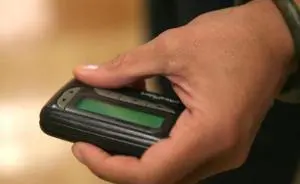The dollar continued its slide against the euro and other major currencies Friday, while oil prices fell sharply as the US faced off against another major hurricane.
The greenback tumbled to its lowest value against the euro since the start of 2015 as Florida's highways were jammed with evacuees fleeing as Hurricane Irma roared toward the Sunshine State after killing at least 17 people across the Caribbean and devastating whole islands.
Besides the loss of life and property, one casualty of a direct hit to Florida population centers could be another Federal Reserve interest rate hike in 2017.
"Forecasters are becoming concerned that the center of the storm could move straight up the Florida peninsula putting both Miami and Orlando within its path," said Boris Schlossberg of BK Asset Management.
"If that turns out to be the case the property damage could be in the tens of billions of dollars and would force US monetary policy makers to maintain an accommodative policy in order to help three top-20 US metropolitan areas rebuild."
The dollar wasn't the only asset to plummet. Oil prices also pulled back sharply, with the US benchmark West Texas Intermediate sagging more than three percent to $47.48 per barrel on worries the storm will dent demand in the affected hurricane region.
Gold meanwhile hit a year-high at $1,357.64 an ounce as traders continued to pile into so-called haven investments, including also the yen and Swiss franc, as jitters over North Korea persist.
In contrast to the dollar, traders are becoming more bullish on the euro after European Central Bank chief Mario Draghi signaled the bank planned to announce a policy shift on stimulus next month.
Stocks markets, for their part, were mostly mixed to slightly lower. In New York, the Nasdaq was the biggest loser, shedding 0.6 percent, with giants such as Apple, Facebook and Google-parent Alphabet all losing more than one percent.
"With this Irma storm bearing down on Florida, it is creating a lot of near term uncertainty," said Jack Ablin, chief investment officer at BMO Private Bank.
One of the biggest losers in the US was credit reporting agency Equifax, which sank 13.7 percent after it disclosed that it suffered a hack that affected as many as 143 million US customers, nearly half the country's population.
(AFP)
 简体中文
简体中文

